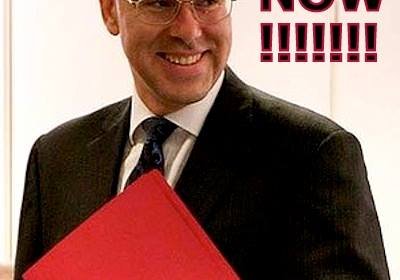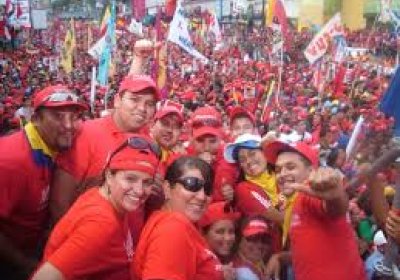A new investigation has shed light on Australia’s role in the overthrow of Chilean leftist president Salvador Allende and exposed the continued veil of secrecy surrounding the precise activities of Australian intelligence agents, 40 years on.
Allende was elected president in 1970, but was deposed on September 11, 1973 by a US-backed military coup that put General Augusto Pinochet in power. Pinochet remained in power for 17 years, presiding over a regime of terror that left thousands dead or disappeared.
International solidarity
The West Papua Freedom Flotilla released this statement on September 25.
***
Six West Papuans have fled across the border to Australia after being hunted by Indonesian authorities for taking part in a ceremonial handover of sacred water and ashes from Australian Aboriginal elders. They have been detained by Australian immigration after reaching Boigu Island in Australia on September 24.
NSW parliament narrowly voted down a September 17 motion to discipline Liberal MLC Peter Phelps over comments he made in parliament defending General Augusto Pinochet’s violent military coup against Chile’s president Salvador Allende in 1973.
Members of the Chilean community have vowed to continue the campaign to hold Phelps to account for his outrageous comments.
On September 11, 40 years to the day of the coup, Phelps praised Pinochet as “a reluctant hero, a morally courageous man” and said he supported a military coup that deposed a democratically elected government.
***
Refuge groups are concerned for the welfare and security of seven West Papuan asylum seekers flown overnight from Horn Island to Port Moresby.
The seven who arrived in Boigu Island in the Torres Starit on September 25 are fleeing Indonesian military and police.
One West Papuan accused of promoting West Papuan independence and involvement in an independence ceremony on September 12 has been arrested by Indonesia police, while others are being hunted.
Ahmad Qatamesh is a 62-year-old Palestinian University academic, writer and political activist who has been held in an Israeli jail under administrative detention for more than two years.
Under Israel’s policy of administrative detention, people can be held without charge or trial for indefinite periods.
Bolivian President Evo Morales plans to file a lawsuit against the US government for crimes against humanity, RT.com reported on September 20. Morales criticised the US for its intimidation tactics and fear-mongering after a plane carrying Venezuelan President Nicolas Maduro was blocked from entering US airspace.
Members of Sydney's Chilean community and supporters protested outside New South Wales Parliament on September 16 to demand Premier Barry O'Farrel sack Liberal MP Peter Phelps.
Venezuelans rallied to condemn fascism on September 11, marking the 40th anniversary of the United States-backed coup d’etat in Chile that ousted left-wing president Salvador Allende.
The rally began at Plaza Salvador Allende at the Central University of Venezuela (UCV) and marched through the city centre to Llaguno Bridge. On the bridge is a memorial to those killed during the 2002 US-backed coup that temporarily removed former Venezuelan president Hugo Chavez from office. Chavez was restored by an uprising by loyal soldiers and the poor.
Venezuelan President Nicolas Maduro announced on September 10 that a Venezuelan Armed Forces plane would carry humanitarian aid to Syrian refugees in Beirut, Lebanon.
The initiative came out of a resolution from the political council of the anti-imperialist bloc Bolivarian Alliance for the Peoples of Our America (ALBA) meeting in Caracas. The plane will bring blankets, medicine, and food. Established by Venezuela and Cuba in 2004 as an alternative to US domination, ALBA now involves eight nations from the region
“The worst genocide of this century” was how Paul Newman, professor of human rights at the University of Bangalore, described what has happened to the Tamil people in Sri Lanka.
Newman was delivering the Eliezer memorial lecture, in memory of Professor CJ Eliezer, the founder of the Eelam Tamil Association of Victoria, at Monash University on August 25.
Newman was speaking on democracy in south Asia. He began by outlining some common features of the south Asian countries including India, Pakistan, Bangladesh, Nepal, Bhutan and Sri Lanka, before discussing Sri Lanka in more detail.
Supporters of the Freedom Flotilla to West Papua, including the Brisbane Aboriginal Sovereign Embassy, gathered outside the Department of Foreign Affairs and Trade in Brisbane on September 2.
They were protesting against the arrest of four supporters of the Freedom Flotilla in the West Papuan city of Sorong on August 28 and who are now facing charges of treason for raising the West Papuan Morning Star flag.
Are you sick of elections that primarily involve a choice between two pro-capitalist parties?
Well, here's your chance to experience an election involving a mass mobilisation of revolutionary-minded people determined to bring about socialism of the 21st century in their country.
The Australia-Venezuela Solidarity Network (AVSN) will host its 14th solidarity brigade to Venezuela over December 4-13. The registration closing date has now been extended to October 1.
- Previous page
- Page 165
- Next page





